Key takeaways:
- Noise control engineering enhances focus and productivity by creating well-designed acoustic environments.
- Reducing noise is essential for health and well-being, as excessive noise can lead to increased stress and reduced quality of life.
- Common sources of noise pollution include urban environments, transport, and recreational activities, necessitating effective noise control strategies.
- Personal techniques for noise management, such as creating quiet zones and using noise-canceling headphones, can significantly improve one’s focus and tranquility.
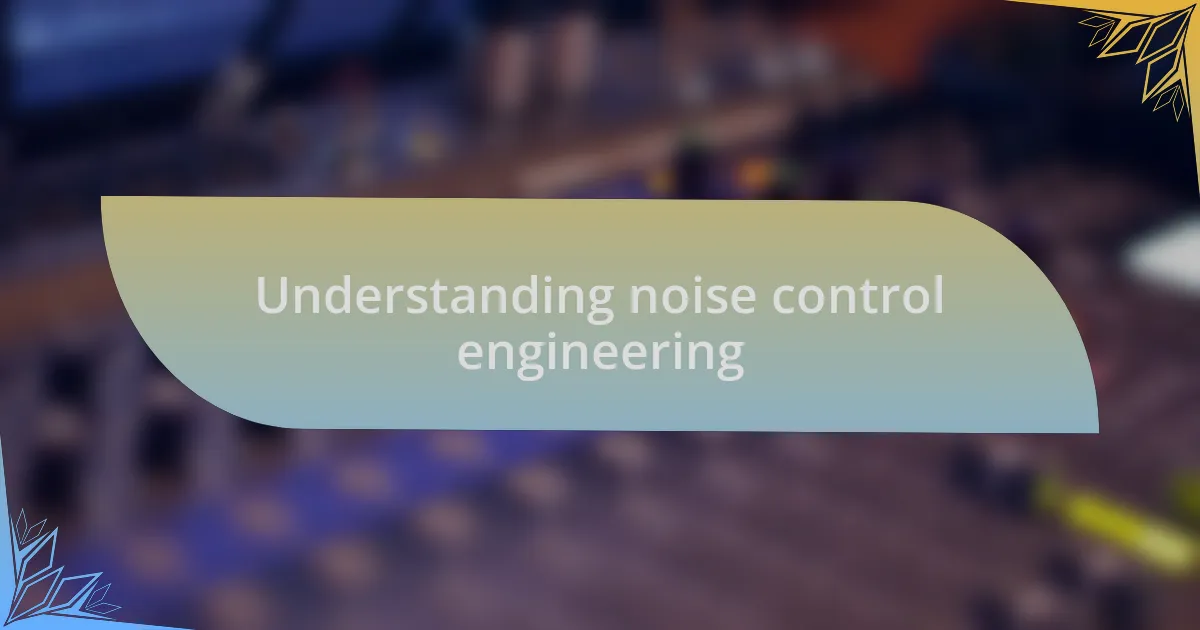
Understanding noise control engineering
Understanding noise control engineering goes beyond just addressing sound levels; it’s about creating environments where people can thrive. Reflecting on my experiences in various workshops, I often found that the right acoustic solutions not only reduced noise but also significantly enhanced focus and productivity. Have you ever noticed how much easier it is to concentrate in a well-designed space?
The principles of noise control engineering encompass a wide range of techniques, from sound insulation to active noise control systems. I remember visiting a construction site where the implementation of sound barriers not only protected workers from hazardous noise exposure but also improved community relations. Isn’t it powerful to think that thoughtfully designed spaces can provide benefits far beyond just comfort?
At times, I think about the emotional impact of noise pollution. It can be overwhelming, isn’t it? When I attended a seminar on noise control solutions, I realized that engineers play a crucial role in transforming lives by mitigating disruptive noises—whether in bustling urban environments or serene natural landscapes. Understanding these concepts is fundamental if we are to foster healthier and more peaceful living conditions.
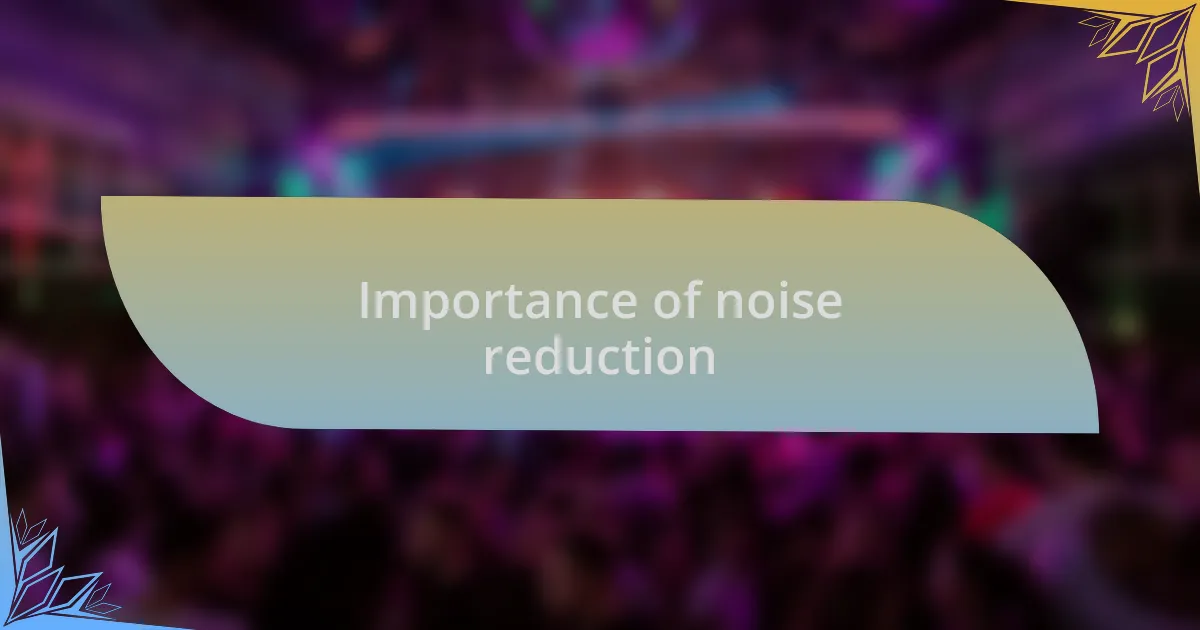
Importance of noise reduction
Reducing noise is essential for creating spaces that promote well-being and productivity. I recall a time when I visited a local library that had implemented various sound-proofing measures. The difference was palpable; a serene atmosphere allowed me to immerse myself in a book without distractions. Have you ever paused to think about how much noise can sap your energy and focus?
The importance of noise reduction extends into our daily lives, impacting our health and relationships. I experienced firsthand how excessive noise led to increased stress during my years living in a busy urban area; it felt like living in a cacophony. When I finally sought out a quieter space, the calm transformed not just my surroundings but my overall quality of life. Isn’t it remarkable how something as simple as managing sound can have such profound implications?
Additionally, noise control isn’t just a luxury; it’s a necessity in various industries. While attending an industrial safety workshop, I learned about the regulatory standards that require noise reduction measures to protect workers’ hearing. Reflecting on these safety protocols made me appreciate the engineers’ work behind the scenes who strive to ensure that environments are not just functional but also safe and welcoming. How much better could our workplaces be with thoughtful noise control?
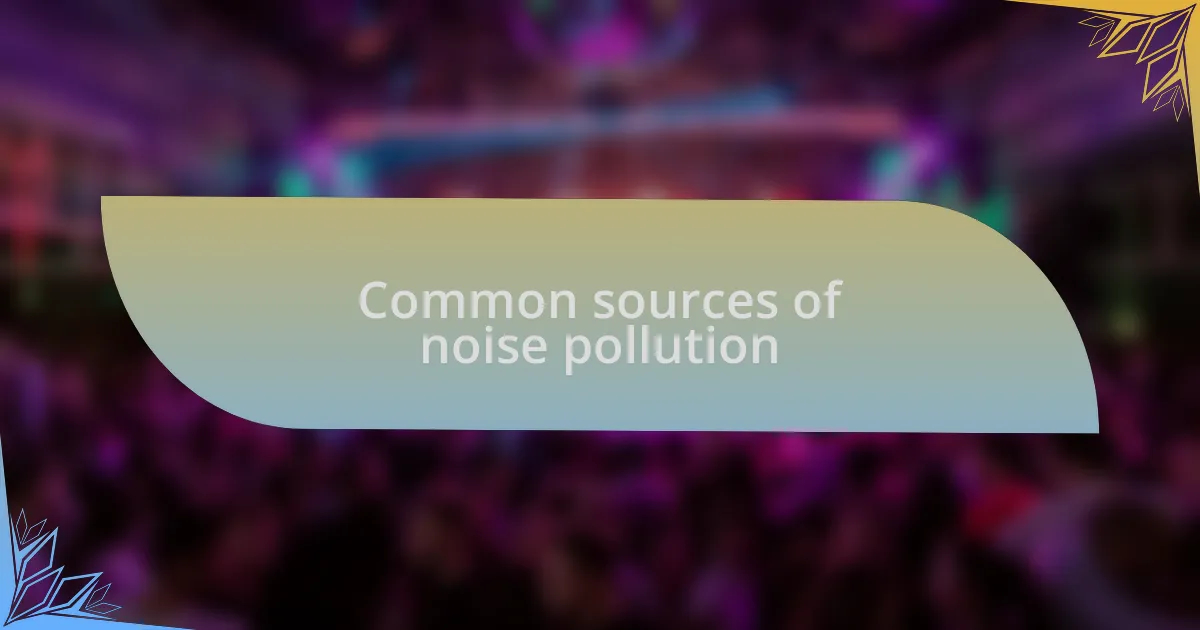
Common sources of noise pollution
When I think about common sources of noise pollution, urban environments come to mind first. I remember my morning commute through busy streets filled with honking horns and the rumble of construction work. It’s astounding how such consistent background noise can create a sense of chaos; have you ever felt exhausted just by being surrounded by it?
Transport is another significant contributor to noise pollution. I once lived near a train track, and the rumble of trains passing at odd hours was a frequent disruptor. The sound lingered in my thoughts even after the trains had gone by. How is it that something so routine can become a constant source of disturbance in our lives?
Lastly, recreational activities often create unexpected noise levels. During a weekend park visit, I was struck by the volume of music from nearby gatherings and the chatter of excited crowds. While I appreciate the joy of social interactions, I couldn’t help but wonder if there’s a balance between enjoying ourselves and respecting the tranquility of nature. Have you ever thought about how communal celebrations can sometimes clash with our desire for peace?
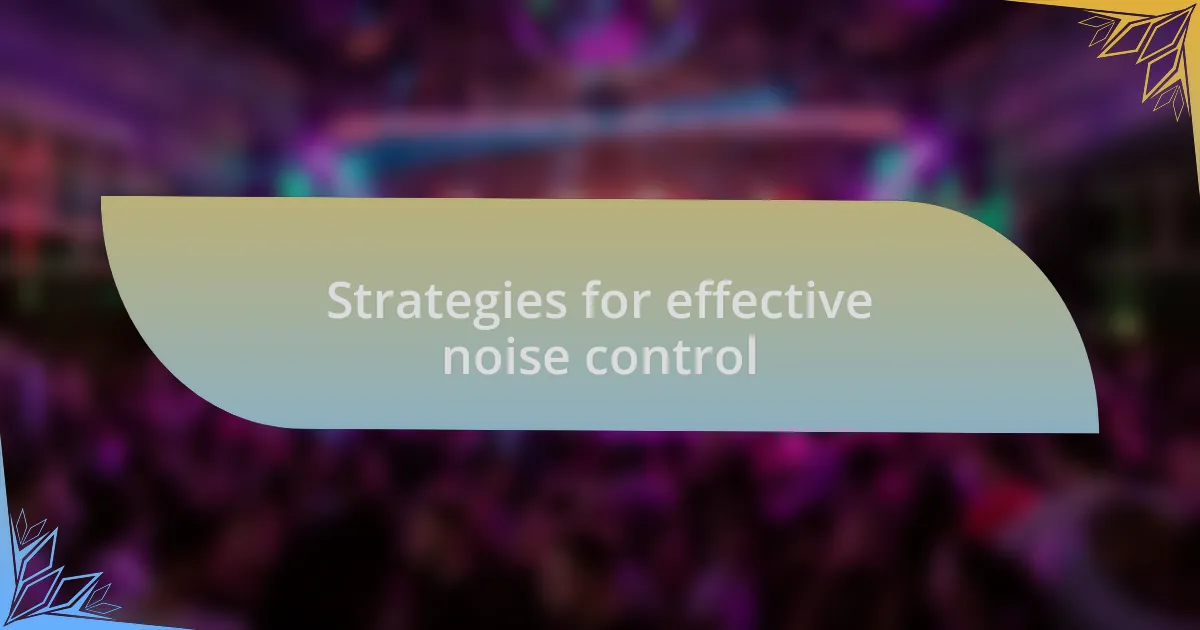
Strategies for effective noise control
One effective strategy for noise control that I’ve found particularly useful is the implementation of sound barriers. When I was remodeling my home, adding acoustic panels made a remarkable difference. Suddenly, the noise from the outside world felt muffled, and I could enjoy a peaceful environment while working or relaxing. Have you ever experienced that “aha” moment when a simple change creates a serene space?
Another approach I’ve seen succeed involves landscaping. I recall my friend planting a row of dense shrubs along her property line, which not only enhanced her yard’s appearance but also acted as a natural sound buffer. It amazed me how nature could contribute to reducing noise pollution while promoting biodiversity. Isn’t it fascinating how a strategic green space can offer both aesthetic and acoustic benefits?
Additionally, utilizing noise-absorbing materials in construction can play a critical role in noise management. During a recent visit to a new office building, I noticed the ceilings were equipped with textured tiles designed to absorb sound. This choice led to a surprisingly calm atmosphere, even in a bustling workplace. Have you considered how the materials in your environment might impact your overall comfort? It’s thoughts like these that often lead to more mindful decisions about our living and working spaces.
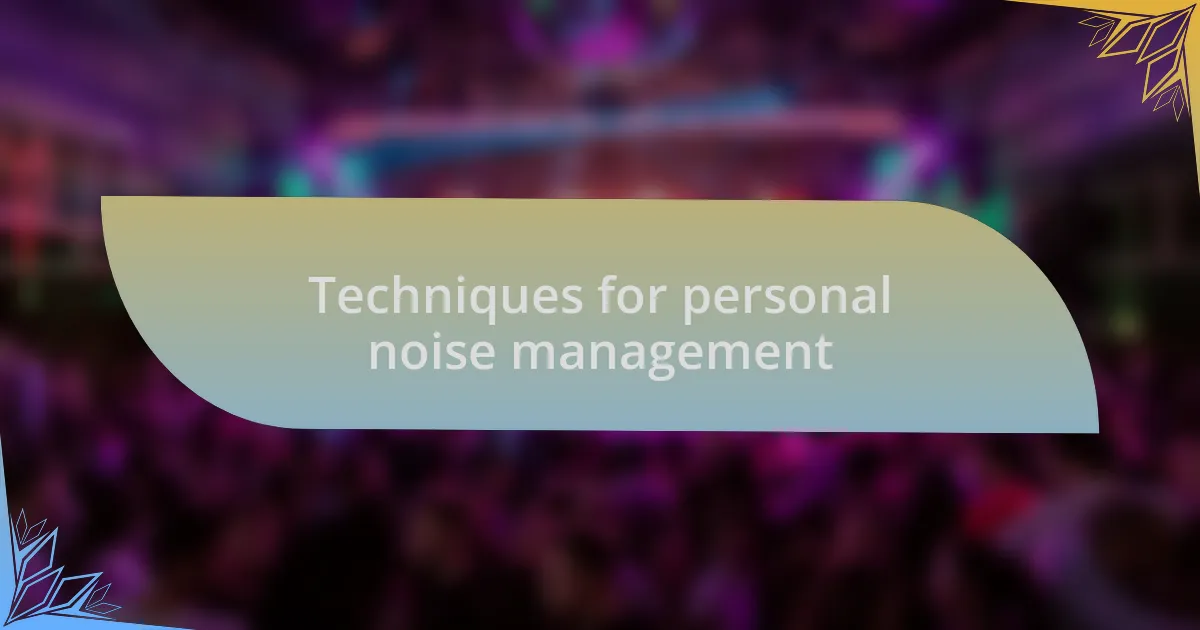
Techniques for personal noise management
I’ve found that creating a personal quiet zone can significantly enhance my peace of mind. When I felt overwhelmed by the constant noise in my apartment, I designated a small corner as my “quiet spot.” It’s amazing how just a few cushions, a comfortable chair, and a soft blanket can transform a chaotic atmosphere into a sanctuary where I can unwind or meditate. Have you ever carved out a little haven for yourself? It truly makes a world of difference.
Another strategy I’ve embraced is using headphones strategically, especially during work or study sessions. I remember a moment when a busy café threatened to disrupt my concentration, so I put on noise-canceling headphones and drowned out the chatter with calming music. This technique not only improved my focus but also helped me reset my mood. Do you find that music or silence enhances your creativity? It’s worth experimenting with.
Lastly, I’ve become an avid user of white noise machines, especially during sleepless nights. Initially skeptical, I was delighted to discover how the gentle hum mimics a soothing environment. When I first tried it, I drifted off faster than I anticipated, as it masked the distracting sounds of the city. Isn’t it reassuring to know that something so simple can lead to restful nights? Exploring options like this can be a game changer for anyone struggling with noise distractions.